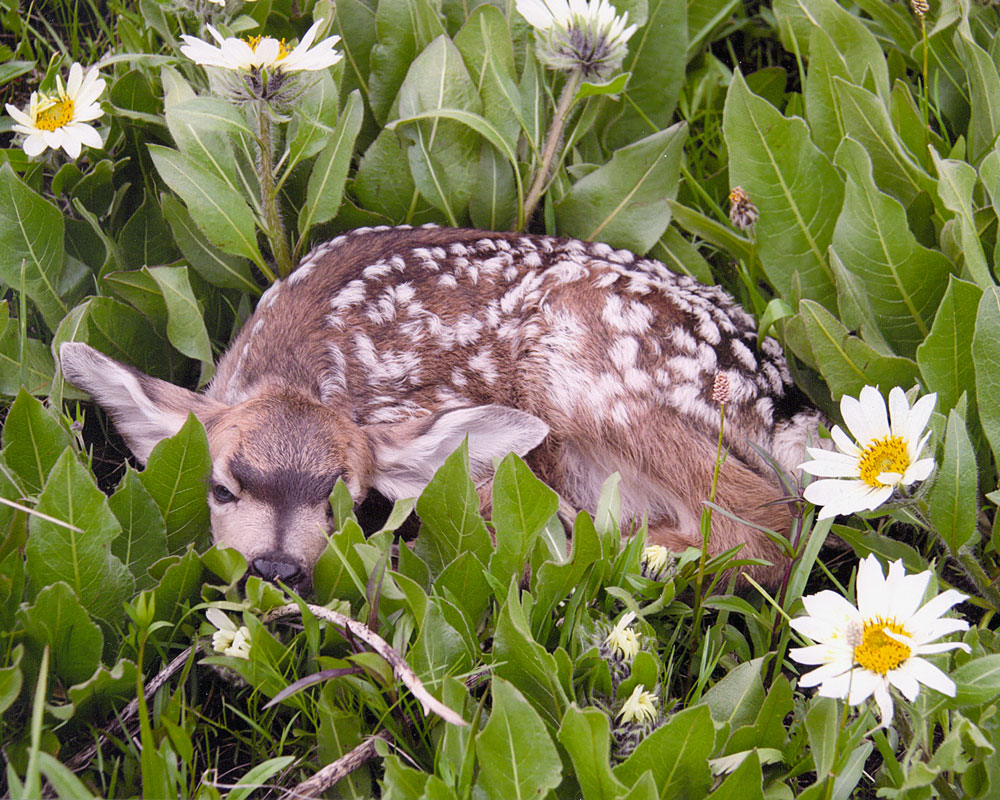Spring is baby season for all things wild.
Being the peak time for wildlife to have their young, the Idaho Fish and Game offers this simple suggestion to those well-intentioned people that discover baby animals that appear to be abandoned - leave them alone.

Each spring a myriad of baby birds, ducklings, goslings, squirrels, fawn mule deer, calf elk, baby raccoons, and baby rabbits are taken from the outdoors and brought to Fish and Game. The unfortunate part of these well-intended "rescues" is that in most cases, the animal was not lost, abandoned, or orphaned.
"Just because the mother is not present, doesn't mean the youngster isn't being properly cared for,” cautions Clay Hickey, Fish and Game wildlife manager based in Lewiston. “If you encounter young wildlife that seems abandoned, it’s best to leave it alone.”
Many wild animal mothers often leave their offspring alone for extended periods of time to feed, rest or to find food for their young. As baby birds mature, they often leave the nest in their efforts to hone their flying skills. Adult birds continue to feed their offspring until such time that the young birds can survive on their own. The survivors either smarten up fast or quickly fade from the scene. While this seems unfortunate or cruel, this is a normal occurrence in nature.
Mammals such as deer, elk, and pronghorn routinely leave their young ones in a secure location, moving off to feed and returning later - sometimes several hours later - to quickly feed their young and leave again. For the first few weeks these offspring have a survival strategy of remaining camouflaged, motionless, and scent-free to avoid predators. This allows the lactating mom to forage away from their young for much of the day.
"Resisting the urge to pick up that deer fawn may seem cruel, but it’s the right thing to do,”
"Resisting the urge to pick up that deer fawn may seem cruel, but it’s the right thing to do,” Hickey added. "The mother is probably nearby just waiting for you to leave.”
Many times when well-meaning people take young wildlife from the wild, their chances of survival are not improved, but lessened. Most do not survive well in captivity and many lack survival skills to allow release back to the wild.
Fish and Game has two alternatives when dealing with animals removed from the wild. Wildlife rehabilitators can attempt to raise the animal and return it back in the wild, but this option sometimes fails because the majority of young animals brought in are often in poor condition and providing the proper nutrition is a huge challenge. The animals that do make it generally have no survival skills and have often unnaturally formed bonds with humans. Fish and Game can attempt to place the animals in zoos, but most zoos now refuse to take the animals because of crowding and potential disease concerns.
“The reality is that the youngster’s fate is usually sealed – in a bad way - when it is ‘rescued’ from the wild,’ Hickey says.
If you find a baby bird, duckling, squirrel or other critter, the best approach is to leave it undisturbed. Only move the animal if it is in harm's way, like found wandering in the road for example. Placing baby birds in a shrub or on a tree branch will help them avoid house cats. Don't fret about getting your scent on a baby bird. The myth that birds will abandon their offspring once humans have handled them is just that: a myth. Most birds lack a sense of smell. Note the location carefully and contact the nearest Fish and Game office who will able to advise you on the best action to take.
Bats are also currently migrating back from their wintering grounds and as they move through, they often roost in places that might seem odd, like low on the side of buildings, tree trunks, and even in people's gardens. If a bat is hanging upside down in its normal position, and not on the ground, leave the bat alone and make sure that pets and children do not disturb the bat. Do not touch the bat. If you find a grounded or injured bat, contact your nearest Fish and Game office.
In addition, do not plan to raise wild animals on your own. Young wild animals require special care and feeding that is beyond what the average household is prepared to manage. Additionally, possession of most species of wildlife taken from the wild is illegal in Idaho.
In the spring when wildlife reproduction is at its peak, you may have the good fortune to observe a nest of birds or a litter of young mammals with no adult in sight. Enjoy the sight but if nothing is obviously amiss, it is best to leave young wildlife alone.
